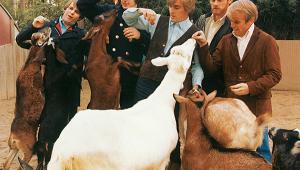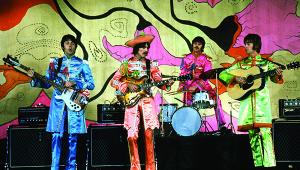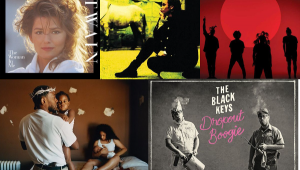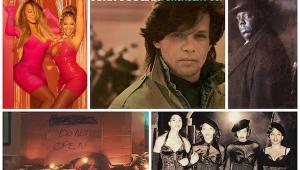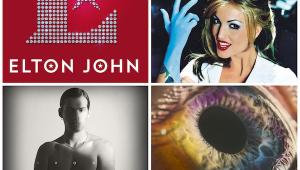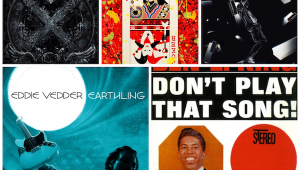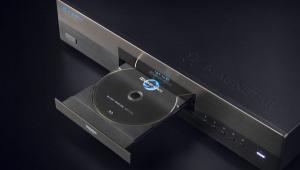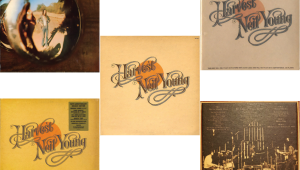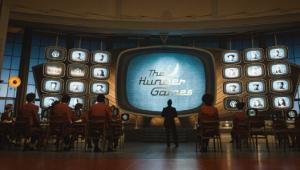Struggling to crack the C++ code for your upcoming exam? Say no more! Our Take My C++ Exam For Me service is your ultimate C++ exam solution. Our C++ experts are well-versed in pointers, classes, and templates, ready to guide you to success. Bid farewell to exam anxiety and embrace your journey to C++ proficiency. Contact us today, and let us make your C++ exam a walk in the park. Your bright future in programming starts right here!
Martin Fry on the Deep Affection He Has for the Dolby Atmos Mix of ABC’s The Lexicon of Love

ABC didn’t exactly fit into the expected early-1980s new-wave mold—and that was just fine with the band’s co-founding lead vocalist and chief songwriter, Martin Fry. “We always wanted to do something we felt represented a wider range of music across an entire album,” he explains. “You don’t want all the tracks to sound the same. Sometimes people stumble across something that becomes identified as their sound, and then it gets a bit repetitive. For us, it was about trying to reflect the time the records were made in—but never repeat ourselves.”
To that end, ABC’s debut album, June 1982’s The Lexicon of Love (released on the Neutron label in the UK, and Mercury in the U.S.), cut a wide compositional swath that deployed a mixture of broadstroke keyboard flourishes, grand orchestral swells, and call-and-response vocal passages directly influenced by Prince and the interplay between trombonist Fred Wesley and James Brown especially. The Lexicon album’s ambitious intent was soon enough reflected in the success of a pair of its big, signature-style hit singles, “Poison Arrow” and “The Look of Love (Part One).”
In addition to exploring the creative drive of the ABC lads from Sheffield, England, proper Lexicon sonic due must also be given to producer Trevor Horn and engineer Gary Langan, as well as the orchestration by Anne Dudley and Fairlight CMI programming by J.J. Jeczalik. As I alluded to above, The Lexicon of Love was indeed a big hit right out of the box, having entered the UK charts at No. 1 and ultimately finding its peak at No. 24 on the U.S. Billboard 200 album chart. Lexicon has since sold well over a million copies worldwide, having gone gold in the U.S., and platinum in the UK. As for those two big singles I mentioned, “The Look of Love (Part One)” reached No. 18 in the U.S. and No. 4 in the UK, while “Poison Arrow” hit No. 25 in the U.S., and No. 6 in the UK.
![]()
Fact is, as richly rewarding as the original The Lexicon of Love album is, it sounds even fuller in its all-new 40th anniversary Dolby Atmos mix, which is available physically via a High Fidelity Pure Audio Blu-ray from Neutron/Mercury/UMC that was released earlier this month—albeit many months after its intended early-2023 release, due to the usual supply chain and manufacturing delays. The Atmos mix is also included in the concurrent Lexicon of Love Neutron/UMC 40th Anniversary Edition 4LP/1BD box set.
On that audio-only HFPA Blu-ray disc, there are five Lexicon mix options, the first four of which are courtesy the ever-ubiquitous Steven Wilson. Those five mixes are as follows: 1) Dolby Atmos; 2) DTS-HD Master Audio 5.1 Surround (24-bit/96kHz); 3) Steven Wilson Stereo Remix (24/96); 4) Steven Wilson Instrumental Stereo Remix (24/96); and 5) the original 1982 stereo mix (24/96). Note that the original 1982 stereo mix does not appear on the box set’s BD, which instead adds Dolby Atmos mixes for its video content—namely, for the full-length Mantrap film directed by Julien Temple, as well as three videoclips (“Poison Arrow,” “The Look of Love (Part One),” and “All of My Heart”).
“I heard a lot more of what we had done there on The Lexicon of Love in the Atmos mix,” Fry allows, “and it’s kind of charming how it all comes together. I’m amazed how well it worked. We weren’t perfect in how we made it at the time, but it sounded believable and authentic.”
When I spoke with Steven Wilson about his Atmos work for The Lexicon of Love well over a year ago back in May 2022, he was nothing less than effusive. “That album, I have to say, is so beautifully produced and recorded,” Wilson told me. “It’s an early Trevor Horn record, one where he was still working mainly with live musicians—and it sounds glorious in Atmos. It’s amazing! Just wait until you hear those keyboard parts and that one drum bit in ‘Poison Arrow’ especially.” I have to agree—that dramatic drum break in “Poison Arrow” is quite the Atmos height-channel payoff, to say the least.
During a Zoom call that was conducted across the Pond last year, Fry, 65, and I discussed producer Trevor Horn’s and ABC’s original intentions for how The Lexicon of Love ended up sounding, why he feels listening to it in Atmos is akin to “climbing inside a crystal kingdom,” and what he likes best about how Steven Wilson mixed it for Atmos playback. The sweetest melody / Is an unheard refrain / So lower your sights / And raise your aim, raise your aim. . .
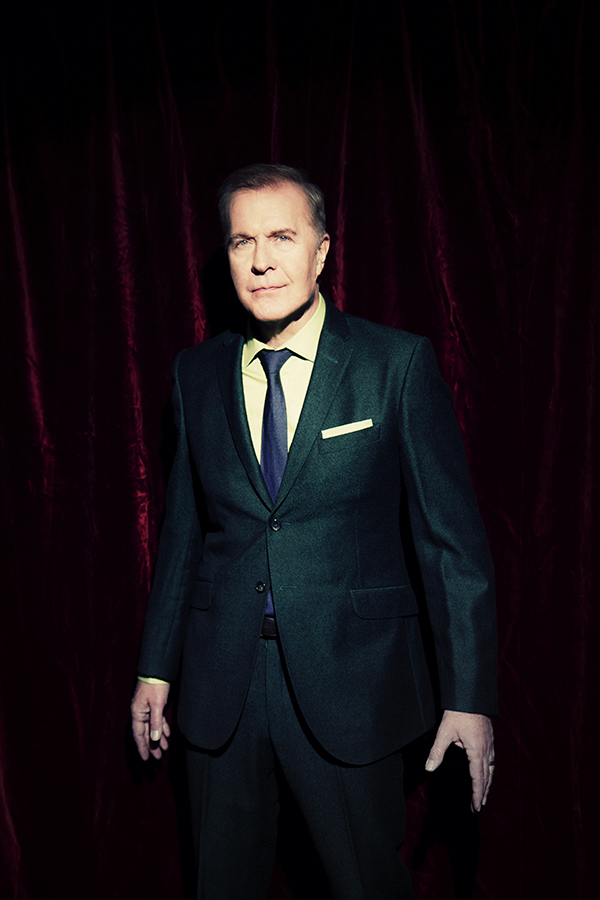
Mike Mettler: Before we get to the Atmos mix of The Lexicon of Love, I want to get some background first. Tell me how and where ABC came to be, and what your impetus was for the band. You guys changed your name from Vice Versa—which is quite telling in a way, since that’s what you did with the band. You flipped it.
Martin Fry: (laughs) Yeah, you’re right! It’s just what it says right there on the tin—we flipped it!
Well, growing up and going to see loads of bands in Manchester where I lived, I saw all sorts of different bands—and it just seeps into you, doesn’t it? Like you do, I love records. I love music. The records I remember and live with today, they’ve all got great lyrics, but they’ve got a unique shape and sound to them—very much so.
So, with The Lexicon of Love, we started out writing a lot of songs that were different to our peers in Sheffield, where we were living at the time. The bands we were seeing then—let’s see, Def Leppard were rehearsing on West Street, but also, there were Cabaret Voltaire and the Human League, Pulp, Clock DVA, Artery—all these bands. All these very arty bands—but very defined, and kind of industrial-sounding. Nobody really wanted to sound particularly commercial, I suppose.
The great thing about that sort of old, bohemian music scene that existed back in the early days is nobody ever really came to Sheffield, so it didn’t really matter. All we had to do was impress the other guys in those bands—and we played some of the toughest shows we’ve ever played. We played to 200 or 300 people who were all in bands. They’d go, “The bass line’s pretty good, but I don’t like his shoes.” (both laugh) So if you can survive that as a young guy, it bodes well.
Mettler: And you all made it out of there alive, thankfully! (both laugh) Seeing how you worked with Trevor Horn on The Lexicon of Love, did you personally have a sound design idea in mind for how you wanted that record to sound? It’s very rich sounding to me.
Fry: Yeah, very much so. Whenever you come to make a record, there’s always something you aspire to, you know? With The Lexicon of Love, we wanted to make a very luxuriant sound—something that was kind of funky and with a rhythmic pulse, but also a little bit awkward. That just comes from being English, I guess. You know, listening to Joy Division and The Cure, but also Earth, Wind & Fire and Chic—so it was a kind of strange amalgamation.
We wanted to make something very polished, so that’s why we had the pizzicato strings on “The Look of Love,” and other stuff. It was strange for the time—but now, it seems more like a normal thing to do. (chuckles)
Mettler: Whenever an ABC song comes on, it doesn’t sound like it’s all that dated. It’s like you’re encapsulated in your own sonic universe.
Fry: Thank you very much for saying that. I love groups like The Velvet Underground, because they had their own universe too. That thing they had in New York, the Inevitable Plastic (slight pause)—what was it called?
Mettler: Yeah, you mean the Exploding Plastic Inevitable [a series of multimedia events organized by Andy Warhol in New York in 1966 and 1967 that The VU participated in].
Fry: Right, yeah! And that was very evocative. I love Roxy Music. [David] Bowie, Steely Dan—you know, people who inhabit their own world. They’re just interested in interpreting the world in their own way.
Back then, we tried very much, as you say, to do the Vice Versa thing by taking the sails out of ABC at times, and then tack it into the wind. If an idea was good on one record, we’d do the opposite on the next—or we tried to. Obviously, that’s what you think when you’re young and arrogant. You think you’re the most innovative artist in the world.
When I listen back, I realize there’s a thread that is kind of there—you know, the thread that sort of goes through all those things we’ve done. Some to good effect, some to lesser effect. And some were successful. But it’s kind of fun just following your own beat, really.
![]()
Mettler: Now let’s get into the Atmos mix of The Lexicon of Love. Tell me how it all came about.
Fry: To celebrate the 40th-and-three-quarters anniversary of the album, we did some orchestral shows in Europe, along with some dates in North America [in 2022]. But also, I went over to see Steven Wilson, our Atmos mixer, at his studio in North London—and he’s just brilliant. I love his work, especially the mixes he’s done for bands like Roxy Music. He lives three or four miles from where I am now. and he let me sit in the studio while he did the mix. It was incredible to have three speakers there [indicates the front soundstage], with the vocals in the center and four speakers above, and three behind.
To climb inside the record like that—it’s obviously a piece of music I’m familiar with, and the songs on it that I continue to play onstage. But it was like climbing inside a crystal kingdom. It was just so—I was listening in his studio where he had the full setup, and it was incredible! There were some guitar parts I just couldn’t remember ever hearing before until he played that mix for me.
Mettler: I have to imagine the most dramatic moment in “Poison Arrow”—when you say, “I thought you loved me / But it seems you don’t care,” followed by that somewhat buried female response, “I care enough to know / I can never love you,” and then we get that big drum attack—I mean, that’s gotta sound incredible to you in Atmos, just like it did to me.
Fry: Yeah! I mean, all you listeners be the judge when you hear it, but we were chasing those kind of—well, how would you put it? Like those really sensory moments. We always had this theory back then. It was the early ’80s, so you’ve got to imagine there were people who were listening to music on headphones, and on Walkmans. I remember seeing this girl on a pair of roller skates, and we used to say to Trevor [Horn], “Can we mix this record so that if the girl on the roller skates plays it, she’s just going to fall over and lose her balance?” It wasn’t intended to hurt anyone—we just had this idea of having something disorientating in a mix.
It’s not a new idea—but, yeah, we’ve always toyed with that notion of, “How do you make a piece of music really slam it?” It’s difficult to do it even now since many people only listen on one speaker, or they stream it on Spotify.
Mettler: Well, it’s a good thing you’re talking to a surround-sound-oriented audience right now, then! (both laugh)
Fry: Nice one! Atmos also lines up with the film we made back then called Mantrap with [director] Julien Temple, which is also in hi-res on [the box set’s] Blu-ray.
Mettler: When you were sitting there with Steven Wilson and listening back to the Atmos mix, did you have any notes or comments to share with him about hearing the things you hadn’t heard before like the guitar parts you mentioned? Did you bring up anything else you wanted to hear?
Fry: No, I really liked everything he’d done because he didn’t mess with the engineering of the record, the structure of it, or the architecture of it. You don’t want somebody to suddenly turn all the vocals down, or cut something out. I don’t know exactly how he did it, but it was really respectful—and it enhanced it.
For me, it was like I was immediately transported back to when we made it. I’m sitting there, and there’s Trevor Horn, and there’s [engineer] Gary Langan. We’re in Sarm East, the tiny studios on Brick Lane, in 1981, finishing off the record—and hearing it in Atmos is like being in the studio. You never get that pleasure when you’re making a record, because you never hear it finished. You’re just looking at the minutiae, and moving down the path to finishing the record.
Mettler: I can attest firsthand that hearing The Lexicon of Love in Atmos is a truly joyous experience, and it sounds similar to what you were feeling when you were hearing it back yourself.
Fry: Oh yeah, because you’re in control of your record when you’re making it—and that’s the power of it. You hear a white label [advance pressing] and you think it’s okay—but when we took it to a club, it sounded like half the volume of everybody else’s records. And we were so paranoid about that, because we knew every last detail of it.
But now, 40 years later, when I play these songs onstage—they’re interpretations, with the band and with the orchestra. I mean, I know the material, so to sit there and listen to the Atmos mix, it was really moving because—exactly as you say—I’m hearing it like maybe people heard it when they first bought it.
And it’s exciting that I’m now detached from it completely, in that I’m just a kind of curator of ABC and the Lexicon of Love music, really. You never really get the chance to do that when a record first comes out and you have all those other things you have to get psyched up to do for it, like making videos. So, it’s really nice to be detached from Lexicon like that. I mean, just how many albums have been released in the last 40 years, you know? It’s not my ego saying this is a classic album, or anything like that. The public have decided that.

- Log in or register to post comments


Martin Fry, the lead singer of ABC, undertale yellow has expressed deep affection for the Dolby Atmos mix of their album "The Lexicon of Love." This mix, a technology known for its immersive audio experience, allows for multidimensional sound placement, enhancing the listening experience by creating a more spacious and enveloping atmosphere.
